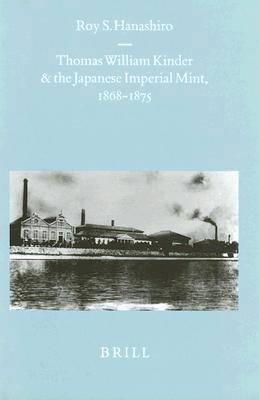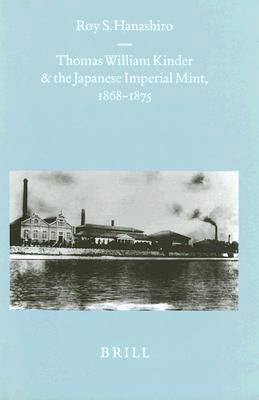
- Afhalen na 1 uur in een winkel met voorraad
- Gratis thuislevering in België vanaf € 30
- Ruim aanbod met 7 miljoen producten
- Afhalen na 1 uur in een winkel met voorraad
- Gratis thuislevering in België vanaf € 30
- Ruim aanbod met 7 miljoen producten
Zoeken
Omschrijving
An analysis of the phenomenon of the Japanese adopting Western technology but resisting foreign domination during Meiji Japan,
at the hand of the formative period of the Japanese Imperial Mint. The author thereby offers a prime historical study on the interaction between the Japanese government and the West, and its underlying sentiments.
Examining the governmental reforms along Western lines, the transfer of Western technology and the hiring of foreign experts, it is examined how, at the Imperial Mint, this process was wholely dominated by the British. Focusing on the role of the director of the Mint, Thomas William Kinder, the author concludes that Kinder was much more than a mere technocrat but a key player in the decision-making process. This very fact, the volume clearly points out, was the major factor leading to the removal of these foreign experts from the Mint.
at the hand of the formative period of the Japanese Imperial Mint. The author thereby offers a prime historical study on the interaction between the Japanese government and the West, and its underlying sentiments.
Examining the governmental reforms along Western lines, the transfer of Western technology and the hiring of foreign experts, it is examined how, at the Imperial Mint, this process was wholely dominated by the British. Focusing on the role of the director of the Mint, Thomas William Kinder, the author concludes that Kinder was much more than a mere technocrat but a key player in the decision-making process. This very fact, the volume clearly points out, was the major factor leading to the removal of these foreign experts from the Mint.
Specificaties
Betrokkenen
- Auteur(s):
- Uitgeverij:
Inhoud
- Aantal bladzijden:
- 234
- Taal:
- Engels
- Reeks:
- Reeksnummer:
- nr. 9
Eigenschappen
- Productcode (EAN):
- 9789004113459
- Verschijningsdatum:
- 15/09/1999
- Uitvoering:
- Hardcover
- Formaat:
- Genaaid
- Afmetingen:
- 164 mm x 246 mm
- Gewicht:
- 607 g

Alleen bij Standaard Boekhandel
+ 485 punten op je klantenkaart van Standaard Boekhandel
Beoordelingen
We publiceren alleen reviews die voldoen aan de voorwaarden voor reviews. Bekijk onze voorwaarden voor reviews.








